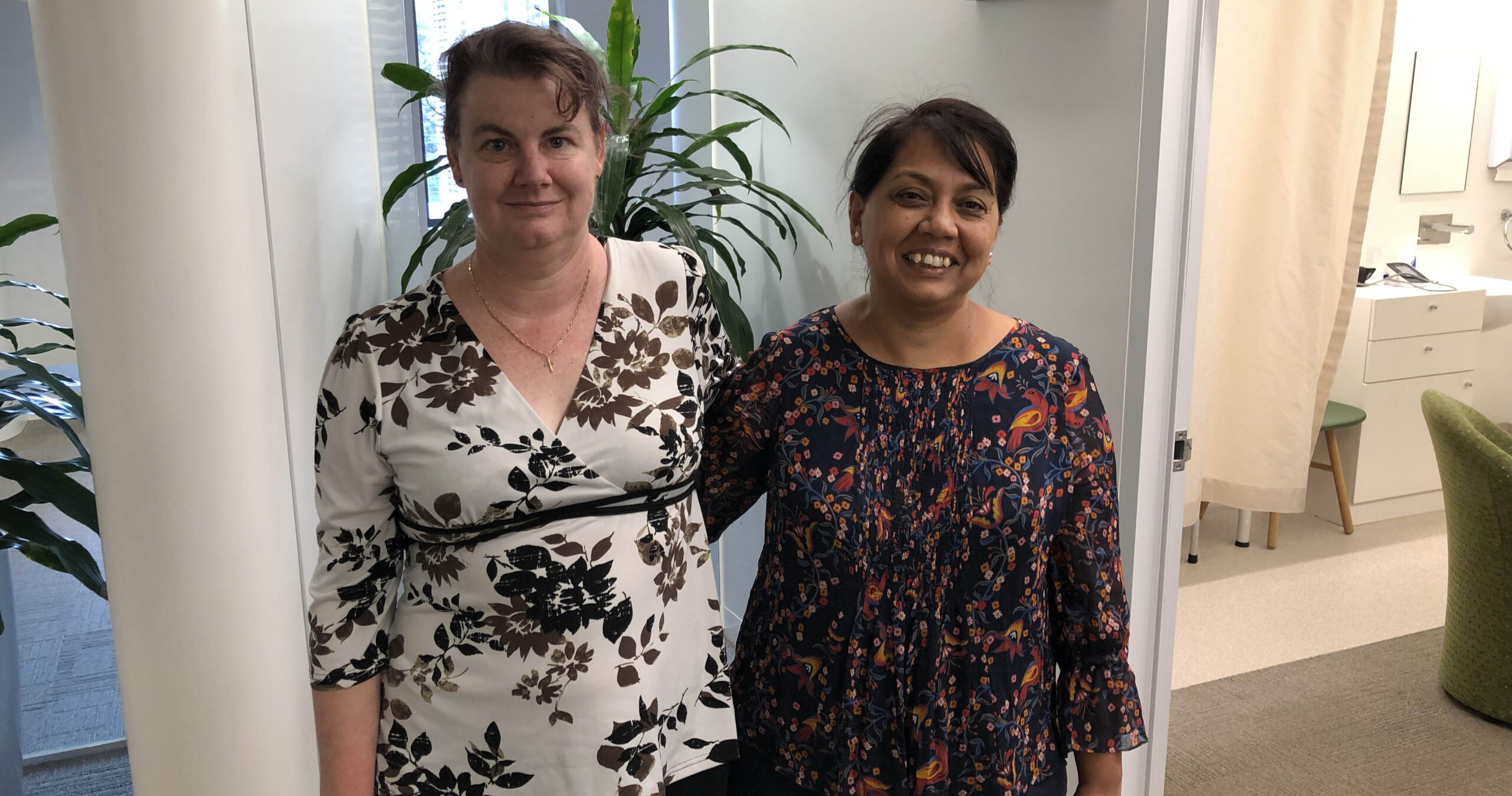Triple heart attack survivor an important reminder of women’s health
27/04/2020

It’s been eight years since Aileen Little’s life was turned upside down.
It was Christmas Eve in 2011, Mrs Little, her husband David and her then two-year-old son James, were on the way to the South Melbourne Market to pick up some seafood for the following day.
Mrs Little said they were 10 minutes into the drive from their Oakleigh home when she started to feel unwell, but put it down to being car sick.
Minutes later she asked her husband to pull over because she felt like she was going to be sick.
“I went and sat on one of the benches in the park and by that stage my arms were feeling really heavy and I was sweating, it felt like it was dripping off me,” Mrs Little said.
After a brief discussion about calling an ambulance the pair decided to drive to the nearest hospital, Cabrini.
“David had a sat nav in the car and I remember saying, ‘if that thing can tell you where the nearest Maccas is, it can tell you where the closest hospital is that’s got an ED’.”
Mrs Little was raced through to Cabrini’s acute cardiac unit where she was told she was having a heart attack.
A moment in time, which felt inconceivable to the otherwise healthy 37-year-old mother.
“I remember being in the recovery area and it was all very surreal because I’d gone from being symptom-free in the car, to symptom-free again in less than two hours. It just felt like this little blip.”
Cardiologist Dr Swati Mukherjee was on call that night.
Dr Mukherjee operated on Mrs Little, inserting two stents into her blocked artery.
“It is surreal when a little kid is running around in the Resus bay in ED and you are trying to explain the risks of what is happening,” Dr Mukherjee said.
After spending Christmas in hospital Mrs Little returned home, easing her way back into everyday life.
But it wasn’t life as she remembered it.
She could no longer pick up her son and was on medication that left horrific bruising across her body and excessive bleeding.
“The school counsellor actually asked me if I was being abused,” Mrs Little said.
Despite suffering a nose bleed that landed her back in hospital a few months after her heart attack, Mrs Little was otherwise well.
Unfortunately, it wasn’t for long.
Three years after her first heart attack, Mrs Little woke up early one morning and this time said she felt like an elephant was sitting on her chest.
“I didn’t have any other symptoms, just this massive weight on my chest and when I tried to move my arms felt a bit numb so I woke my husband up and he called an ambulance.”
When Mrs Little arrived at Cabrini, she was told she was suffering another heart attack.
Heart attack survivor Aileen Little with Cabrini Cardiologist Dr Swati Mukherjee
Recovery was easier the second time round, but Mrs Little has had to make some big adjustments to her life.
“I have my moments, sometimes I feel a bit clingy to life and clingy to family but other times it’s just part of who I am,” she said.
“It’s been a difficult journey though, especially having a young child. Initially not being able to pick him up, I had to explain to him that I couldn’t pick him up, that I would sit down and he could climb up.”
As well as readjusting to this, Mrs Little was told having another baby would put her at high risk of having another heart attack.
“There was a little bit of grieving to go through with not being able to have any more children.
“I don’t feel unlucky. I feel, I suppose, fortuitous that it played out ok and I’m still here and I’m getting to see my son grow up.”
Now, Mrs Little has regular check-ups with Dr Mukherjee every six months and said she was vigilant about keeping a list of her medical history and current medication with her at all times.
She said she also encouraged people to fill out the medical information space on their mobile phones.
“It’s something I encourage everyone to do. You never know when you might end up in ED.”
Dr Mukherjee said although there were a number of risk factors that contributed to cardiac problems, many women present with no risk factors.
“I have seen quite a few women who don’t have any of the traditional risk factors,” she said.
“Women present later, the symptom to presentation time is longer for women. We need to get better at recognising the symptoms of heart attacks in women. They can often present with symptoms that are atypical.
“Cabrini is committed to raising awareness of heart attacks among women to help them receive treatment earlier and hopefully improve their outcomes.”
Cabrini offers a broad range of cardiac care, from the latest in minimally invasive procedures, to complex open heart surgery.
Cabrini’s program is fully supported by diagnostic testing, state-of-the-art operating theatres and catheterisation laboratories, an acute cardiac ward and specialised rehabilitation and has been one of the flagship services for more than 50 years.
For more information on Cabrini’s cardiac services, click here.